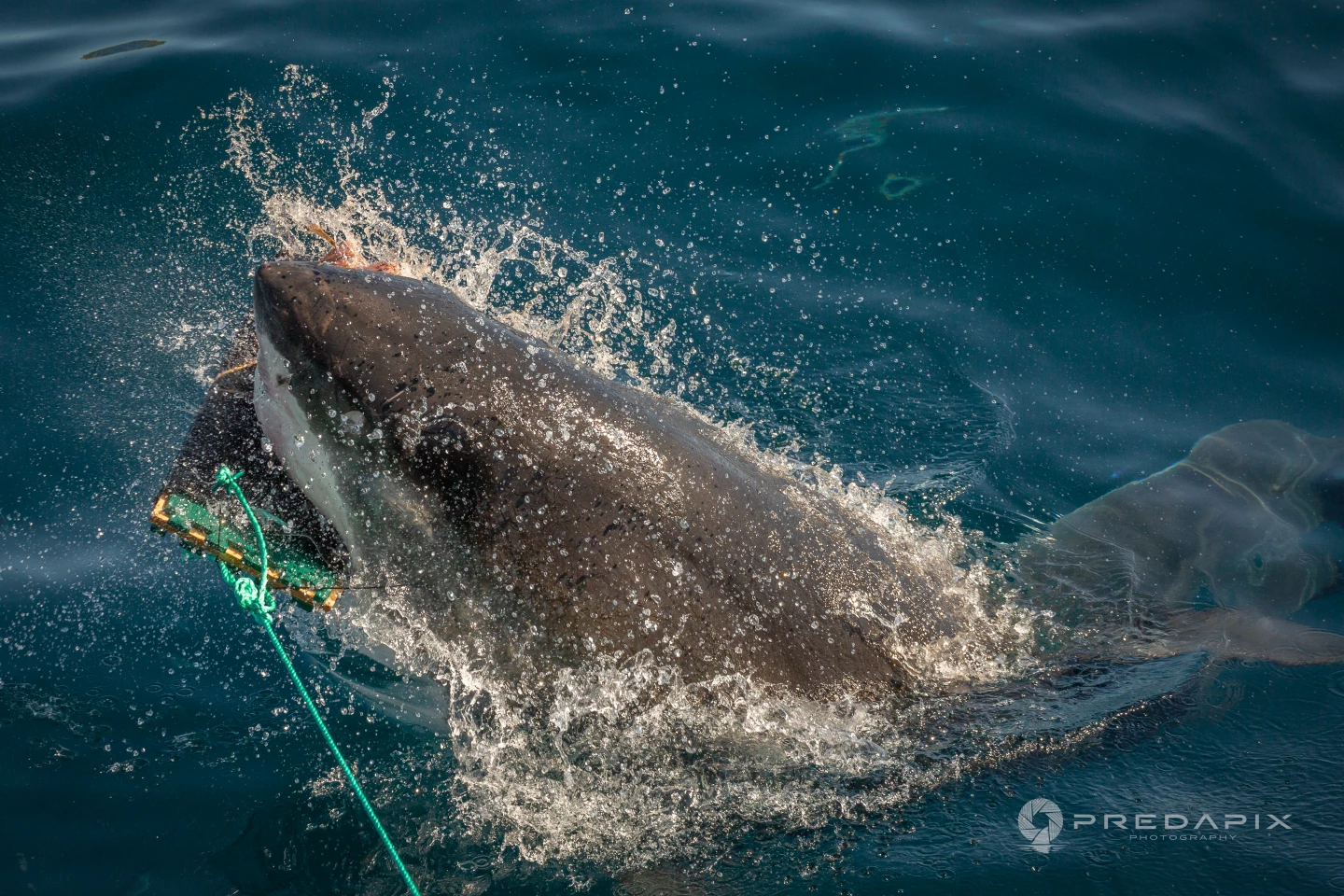In certain parts of the world, people such as surfers stand a real risk of being bitten by sharks. According to a recent study, however, a lightweight wetsuit fabric could greatly reduce the seriousness of injuries when such attacks occur.
Conducted by scientists from Australia's Flinders University, the study was designed to assess 10 variants of two types of protective fabric. Made up of ultra-high molecular weight polyethylene fibers (UHMWPE), such fabric is applied to traditional neoprene, the idea being that wetsuits made from the combined materials will be more bite-resistant as a result.
In order to put that claim to the test, the researchers started by coating samples of neoprene with the different types of fabric. They then wrapped the material around bite-load sensors that were sandwiched between foam-covered steel plates, threw those wrapped-up sensors into the water at Australia's Neptune Islands Group Marine Park, then watched as local great white sharks bit down on them.

The scientists chose to seek out great whites due to the fact that they're the shark species responsible for the greatest number of fatal attacks on humans. It is estimated that the animals which attacked the testing rigs measured between 3 and 4 meters (10 and 13 ft) in length.
Additionally, samples of the coated neoprene were subjected to laboratory-based puncture and laceration tests. In the lab, and in the sea, the material performed well.
"We found that the new fabrics were more resistant to puncture, laceration, and bites from white sharks than standard neoprene," says Flinders' Assoc. Prof. Charlie Huveneers. "Both fabrics tested may provide some protection against shark bite, and could be used as part of a shark bite mitigation strategy."
Source: Flinders University





